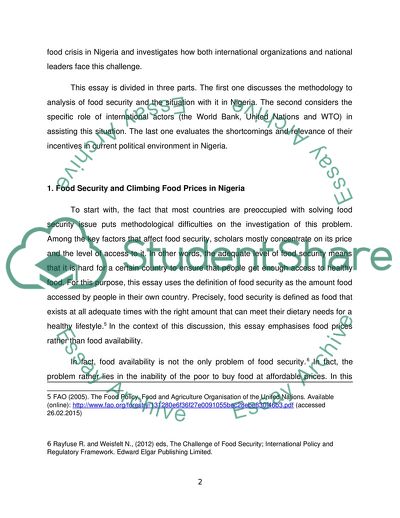Cite this document
(Food Security and Climbing Food Prices in Nigeria Coursework Example | Topics and Well Written Essays - 2750 words, n.d.)
Food Security and Climbing Food Prices in Nigeria Coursework Example | Topics and Well Written Essays - 2750 words. https://studentshare.org/social-science/1869878-global-food-security-how-food-security-being-governed-in-nigeria
Food Security and Climbing Food Prices in Nigeria Coursework Example | Topics and Well Written Essays - 2750 words. https://studentshare.org/social-science/1869878-global-food-security-how-food-security-being-governed-in-nigeria
(Food Security and Climbing Food Prices in Nigeria Coursework Example | Topics and Well Written Essays - 2750 Words)
Food Security and Climbing Food Prices in Nigeria Coursework Example | Topics and Well Written Essays - 2750 Words. https://studentshare.org/social-science/1869878-global-food-security-how-food-security-being-governed-in-nigeria.
Food Security and Climbing Food Prices in Nigeria Coursework Example | Topics and Well Written Essays - 2750 Words. https://studentshare.org/social-science/1869878-global-food-security-how-food-security-being-governed-in-nigeria.
“Food Security and Climbing Food Prices in Nigeria Coursework Example | Topics and Well Written Essays - 2750 Words”. https://studentshare.org/social-science/1869878-global-food-security-how-food-security-being-governed-in-nigeria.


